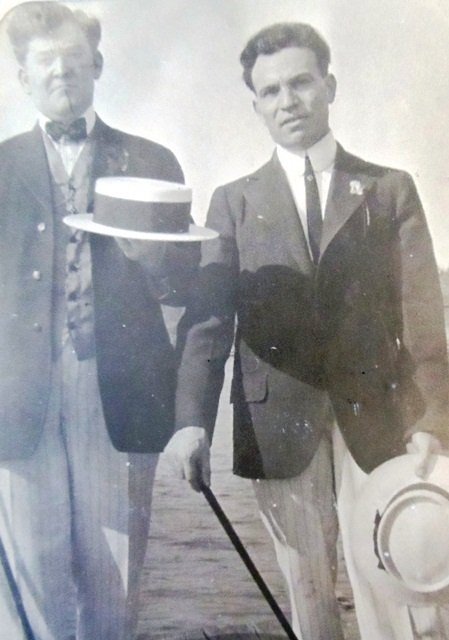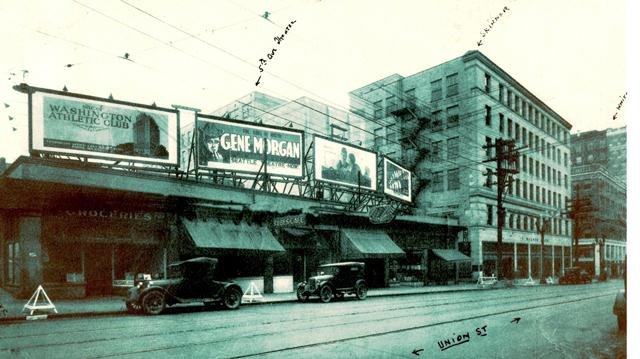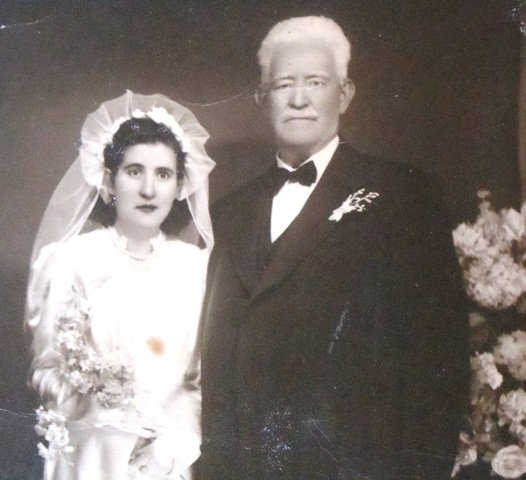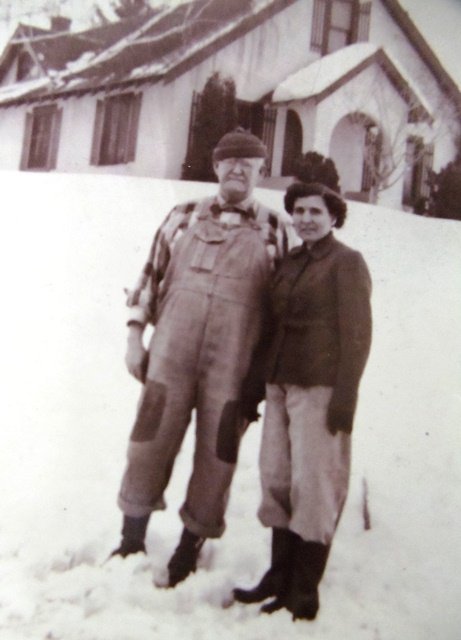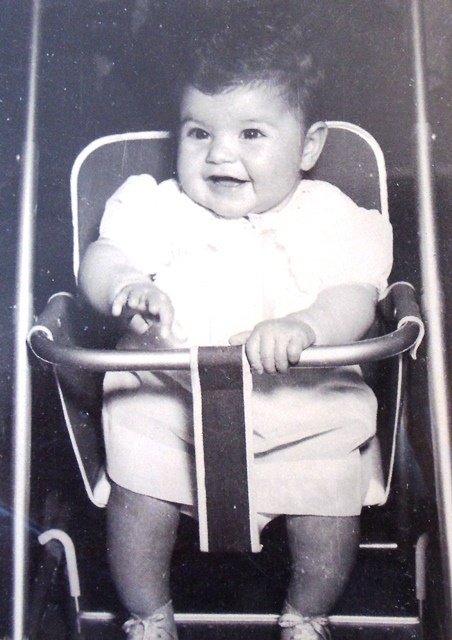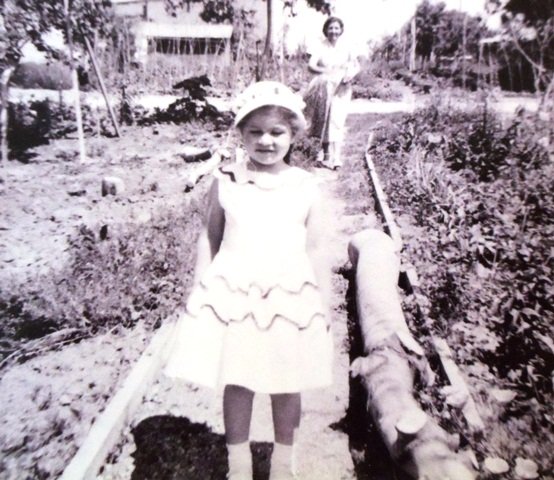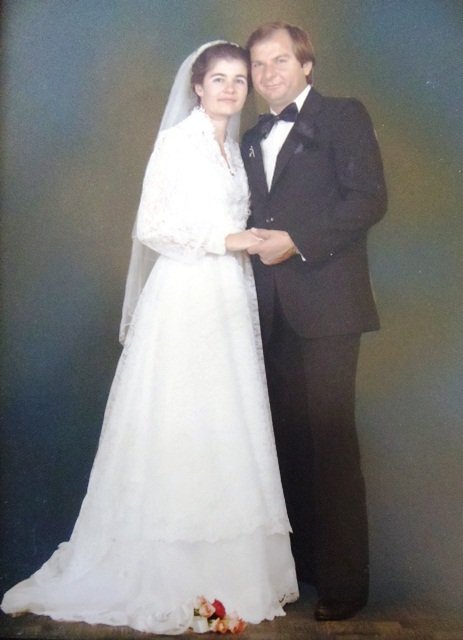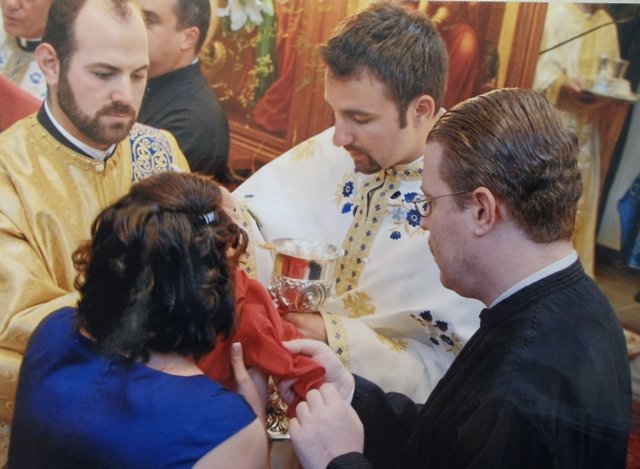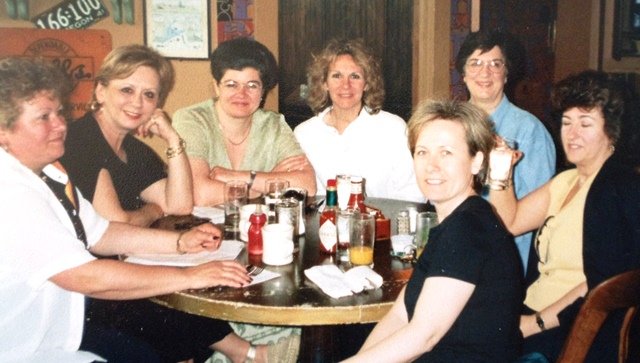It Really Did Take A Village
While the town of Manson, Washington, was reminiscent of her parents’ homes in Greece, hers was the only Greek family in the area. For Diamando (Manda) Tagas Bekris, it really did take a village to raise a child. It was from the influence and urging of non-Greek neighbors that she was able to learn about the world outside of her own family.
John (Ioannis) Christo Tagas was born in 1886 in the village of Ariohori, just north of Kalamata in the southwest Peloponnese area of Greece. His mother died when he was eight years old and he helped his father and stepmother raise their three children. In 1905, at the age of 19, he left Greece from the port of Piraeus and sailed by way of France to New York City where he found work at the Waldorf Astoria Hotel. From there he chose the smaller city of Boston, Massachusetts, where he worked in a hat factory. He hated the harsh winters in the east and traveled by rail to Los Angeles, working again in the hospitality business at the Ambassador Hotel. John loved Santa Barbara, Santa Rosa and the Napa Valley areas of California but, still seeking his dream, moved farther north. After a short time in Astoria, Oregon, with other Greek bachelors, he moved to Seattle in 1912 and his first address there was 525 Union Street across from what became the Washington Athletic Club. Just below the existing restaurant of the Club he either managed or owned a grocery store. He later became a chef at the Olympic Hotel (now Fairmont Olympic), then opened his own restaurant at Ninth and Pike in 1919. He also lived in south Seattle where he found room to garden.
In 1927 John learned that a cook was needed for a crew of men constructing a flume (an open water channel) in eastern Washington. The job took him to Manson where the project was one of the first to bring irrigation to the Manson area for the apple orchards, just north of Chelan. John fell in love with the area as it reminded him of Kalamata, Greece. He sold his holdings in Seattle and bought three lots in Manson where he began spending his summers while wintering with his cousin, George Tagas, in Seattle. He ultimately bought his fourth lot there and in 1934 built his 900-square-foot house with cedar shavings for insulation. While there is no record of the structure at the Chelan County Planning Department, the date was confirmed when an edition of the Seattle Daily Times newspaper, with his address label on it and dated 1934, was recently discovered, nailed in the walls between the two-by-four framing.
John had no plans to marry and remained a bachelor until the age of 65. As was the expectation at the time, he had been sending money to his brother and two sisters in Greece. Then he had a disturbing dream where his mother who had died at an early age asked, “Who will care for you in your old age?” He immediately wrote to his family indicating he wanted to get married and would come to the village to find a bride.
Eleni (Helen) Tsibouris had learned about the United States from a cousin who had married a furrier and lived in New York. Helen was aching for the wonderful easier life in America especially with Greece having been ravaged by World War II. Knowing these possibilities and having the opportunity to marry John Tagas, she said, “Of course I’ll marry him.” Helen did not know then that her life with a man 29 years her senior would be raising vegetables in a remote village in Washington State. Helen loved raising vegetables and owning such a lovely piece of land in the rich and wonderful setting that was Manson. Tomatoes, cabbage, lettuce, beans, squash, cucumbers and onions were their most popular vegetables for sale, but many others were grown as well. It was so much more than what she would have been given as a dowry in Greece which would have to have been shared with two brothers and their families. In the spring many townsfolk would come by the garden to buy their tomato plants for their own gardens. She never returned to Greece to see the family she left behind.
After completing his work with the flume, John began his truck garden business named The Victory Gardens of Manson. He drove his 1928 Chevrolet long-bed truck up and down the Columbia River selling vegetables from his four-lot garden. He would deliver every Monday to restaurants and grocery stores, then take an order for the upcoming week. In 1951 John planted walnut trees that started producing nicely. John and Helen would clean, dry and shell many pounds of walnuts during the winter and sell the shelled walnuts in the spring to grocery stores, but mostly to a bakery in Chelan. He was generous as well, frequently giving produce away to neighbors and families that could not afford to buy vegetables.
Diamando (Manda) was born on October 15, 1952 and named after her paternal grandmother. The spelling was registered at the hospital as Theamando, from John’s pronunciation. He wasn’t sure of the English way of spelling it so left it as that. Shortening the name to Mando was not quite fitting, so a neighbor, Hallie Schoolcraft said, “We’ll call her Manda.” Manda was how the name was accepted at school, so it remained.
John had sold tomatoes to the Valison family in Cashmere, who owned the Cashmere Café. Through that relationship, Anna and her daughter Olga Valison became her nounas (godmothers). Her baptism, along with three other children from the Wenatchee area, took place in Soap Lake, Washington, in a large kettle in a restaurant kitchen. The Greek Orthodox priest had come all the way from Spokane to officiate. While infants are baptized in the nude, four-year-old Manda was baptized in her underwear.
The Tagas family lived an isolated existence and one with no frills. John and Helen were honorable and proud and never took a “handout” from anyone. While John was well versed in English, Helen spoke only Greek until Manda began learning English at school.
One day two women of the town came to the home insisting that Manda attend church, arguing that there was no Greek Orthodox Church in the area and Manda needed to learn about religion to become a Christian. John would argue, “But she is a Christian, she’s been baptized!” After many visits and much debate, he allowed the ladies to take turns escorting Manda to the Little Stone Church in Lakeside, Washington, ten miles away. Also, urging from the Manson Methodist minister, Eugene Hibbard, her father consented for Manda to become a member of “Bluebirds and Campfire” since his wife was the leader for that age group. Manda also gained some new playmates when the Chelan County Sheriff and his three daughters moved into the immediate neighborhood.
While Manda was occasionally embarrassed by her family’s minimal existence, she looks back with pride at having developed a strong work ethic. Manda remembers that friends and neighbors always cared for them and never held any judgments based on income or ethnicity. The village feeling in Manson provided for the most part the same support that one might expect from a Greek community within a larger city. Manda smiles as she visualizes the dandelion greens and fresh bread that many times provided their subsistence and are now often sold as delicacies.
One day while watching her mother chopping wood for their wood stove, she saw a piece of wood hit her mother and knock her down. Seeing blood and realizing her mother wasn’t; responding, she ran to neighbors for help. A neighbor carried her to bed, Manda washed her with a warm cloth and Helen finally awoke after about twenty minutes. A child of ten or eleven doesn’t realize the possibility that one or the other parent could pass away. From that day forward it was in the back of Manda’s mind how many years separated her from her parents.
When Manda graduated from high school in 1970, she moved directly to Seattle where she enjoyed the excitement of a big city: people coming and going with a purpose, learning bus routes and finding work in a factory sewing zippers on down sleeping bags. She also worked at a shop sewing theater costumes. Then she found the Continental Pasty Shop in the University District where owners Spiro Savvides and Costa Antonopoulos introduced Manda to Hristo (Chris) Bekris. Chris and Manda were married in a civil ceremony in 1976. With almost no family in Washington, Manda and Chris went to Greece and were married in the Orthodox Church on October 26, 1980 in the town of Amaliada, northwest of Olympia and south of Patra in the Peloponnese.
Back in Seattle it was lots of work for the couple, Manda at Safeway, Frederick and Nelson Department Store and the Jolly King restaurant, and Chris at his brother’s place, Costa’s Restaurant. Manda and Chris were able to purchase Costa’s and have operated it since 1975. In addition to the time spent at the restaurant, Manda has also worked part-time in the food service program at Ingraham High School.
Then there are the boys. Their oldest is Ioannis (Yianni) who lives in Portland, Oregon, with his wife Rena (nee Belesiotes). He is an electrician and she a teacher. Their son Adrianos is the first grandchild. Next is Nikola (Niko) a graduate of the University of Washington and Holy Cross Theology School in Brookline, Massachusetts. He is married to Stella (nee Zaharioudakis) and was ordained into the Greek Orthodox priesthood in 2011. Constantinos (Dino) finished the European Studies program at the University of Washington, attended the study abroad program in Ioannina, Greece, and now works at Microsoft. Dionysios (Denny) finished his history studies at the University of Washington, including one quarter in Greece and manages the servers at the restaurant while considering a teaching career. Angelo Dimitri is studying civil engineering at Bellevue College and works for the Boeing Company.
Manda is grateful for the Greek community in Seattle, especially through her St. Demetrios Church. Had they been in eastern Washington the boys would not have experienced being altar boys, attending All Saints Camp programs, dancing and social events. Their experiences in the Greek community have provided friendships for life. She knows any of them could be “dropped” in Greece and would function very well.
Despite speaking only Greek as a child, speaking Greek at home, with her husband and with friends at Church, Manda has no discernible accent. Shifting from Greek to English for her it is like “turning a radio knob.” In the video segment Two Greek Language Stories she shows her ability to use both languages easily and with humor.
Manda was once told that people with no children have just half a perspective on life. She has come to fully understand that saying. While hers was a difficult life growing up in Manson she values the strength it gave her. And although the experiences of a larger Greek community were lacking in her earlier life, she and her family have certainly made up for anything that was missing.
By John and Joann Nicon, January 2012
PHOTOS
Manda Tagas Bekris and her boys
John Tagas and Chris Metaxas, circa 1920
John’s boarding house view, circa 1912
Eleni and John Tagas wedding, 1951
John and Eleni Tagas, circa 1956
Manda, 1953
Manda in her new baptismal attire, 1956
Manda and Chris Bekris wedding, 1980
The Brothers Five (l-r) Dionysios (Denny), Angelo Dimitri, Nikola (Niko), Ioannis (Yianni), Constantino (Dino), 2007
Fr. Niko Bekris, 2011
Manda and friends (l-r) Dora Founarakis, Pat Bacolas, Manda, Saundra Maroussis, Eleni Malevitsis, Maria Barbas, Irini Velaoras, 1998
Photo 1 by John Nicon; photo 3 courtesy of Doug and Karen Hilde and the Washington Athletic Club; all others from Bekris family collection
SOURCES
Video interview by John and Joann Nicon, January 2012
VIDEO SEGMENTS
Manda’s Early Schooling
Raising the Boys
Two Greek Language Stories
A Favorite Saying


